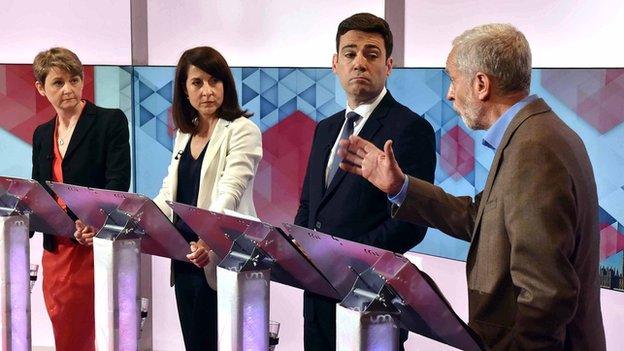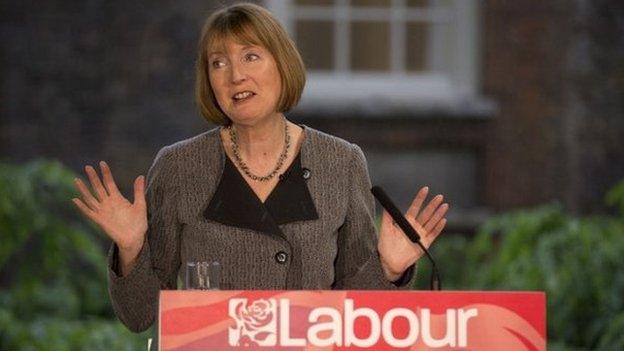Labour welfare row underlines next leader's task
- Published

Will the next Labour leader persuade the party to reform welfare?
First Harriet Harman took a stand - saying Labour had to wake up and listen to voters on welfare.
Then she compromised - tabling an amendment designed to sidestep a row.
And then almost 50 rebels ignored her instructions.
Were she Labour's permanent leader, her authority would be in tatters.
But it's not about her; she'll be gone by the autumn.
'Starting gun'
The real question is: could any of her would-be successors persuade the party that welfare must be reformed now?
Would they want, or dare, to try?
One of them, Andy Burnham, says he's "firing the starting gun on Labour's opposition" to the welfare bill, but he didn't vote against it.
How come? Labour's compromise amendment said the party "declines to give a Second Reading" to the Bill.
So Labour MPs who did what they were told last night - Burnham among them - voted for a Labour amendment that said they wouldn't give the bill a second reading, then abstained 15 minutes later when they got a chance to vote for real on whether to give the bill second reading.
Confused? That's political compromise for you.
Centre ground
Burnham can fairly hint he fell out with Harriet Harman over the idea of accepting cuts and pushed her to change her position - and say he would do things differently if he got elected leader. But the comments below his Facebook , externalposting explaining all this suggest some potential supporters are unimpressed.
One reads: "I am so sorry Andy, but tonight you lost my vote for leadership."
Posts on the net are no certain judge of sentiment, but it's fair to say if George Osborne hoped to create splits, confusion and rancour in Labour's ranks, he succeeded.
There have been bigger tussles between left and right in Labour's history, and bigger and more memorable rebellions.
But this drama is staged in plain sight, with fresh, young MPs playing leading roles, at the moment the party chooses a leader who may - perhaps - be in place at the general election.
In influencing what positions the leadership candidates take, it could help define the sort of party that fights the 2020 campaign.
And it could reveal how much space in the centre ground of British politics is left for the chancellor to try to claim for his own.
- Published21 July 2015
